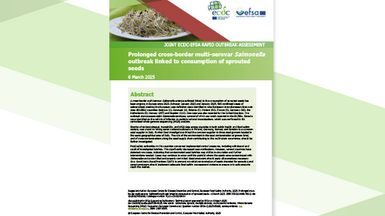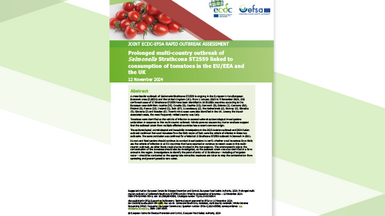Risk assessment: Update on autochthonous dengue cases in Madeira, Portugal
This is the first sustained transmission of dengue in the European Union since the 1920s. Autochthonous transmission is likely to continue until the end of the year when mosquito density will probably decrease.
The epidemiological situation does not imply any trade or travel restriction beyond the disinfestations currently being implemented.As the influenza transmission season will commence around the end of the year, concomitant actions for monitoring dengue and influenza are being launched in Madeira.
Executive Summary
The Autonomous Region of Madeira constituted the first known occurrence of locally transmitted dengue infection on the island on 3 October 2012 when the Public Health Authority of Portugal reported two cases of dengue infection in residents. These infections in patients residing in Madeira mark the first sustained transmission of dengue in the European Union since the 1920s.Local transmission of dengue infection has been now established for several weeks on Madeira and as of 11 November 2012, the Portuguese Ministry of Health reported 1 357 cases of dengue infection from the public health sector in Madeira. 669 of these cases were laboratory confirmed, 688 probable cases.
Since the beginning of the outbreak, 89 patients were hospitalised and five currently remain in hospital. So far, 25 patients have been diagnosed with dengue after returning from the island: cases were reported from mainland Portugal (nine), the UK (six), Germany (seven), Sweden (one) and France (two). In the meantime, Portuguese and regional health authorities have been implementing control measures to limit extension of the outbreak to reduce the risk of sustained transmission locally and that of exportation of infected vectors from the island. In addition, ECDC provided technical assistance to the health authorities in Madeira in their efforts to control the outbreak by deploying an expert mission from 22 October until 16 November. Following this visit, ECDC updated its initial rapid risk assessment on the situation. The updated assessment reconfirms that the current epidemiological situation does not imply any trade or travel restriction beyond the disinfestations implemented on the island at present. However, residents as well as tourists are strongly advised to take individual protective measures – like using repellents – to avoid mosquito bites.
Dengue is transmitted by a daytime mosquito (Aedes aegypti) and thus protective measures should be applied throughout the whole day. The latest data indicate that the outbreak is still on-going and its exact development cannot be anticipated at this point of time. With tourists visiting Madeira, continued import of dengue cases from the island to other EU countries is to be expected until the mosquito population is decreased and transmission interrupted.Anyone who develops a fever or flu-like symptoms (with severe headache, retro-orbital pain, myalgia, arthralgia and maculo-papular rash) within two weeks of returning from a trip to Madeira should seek medical advice







